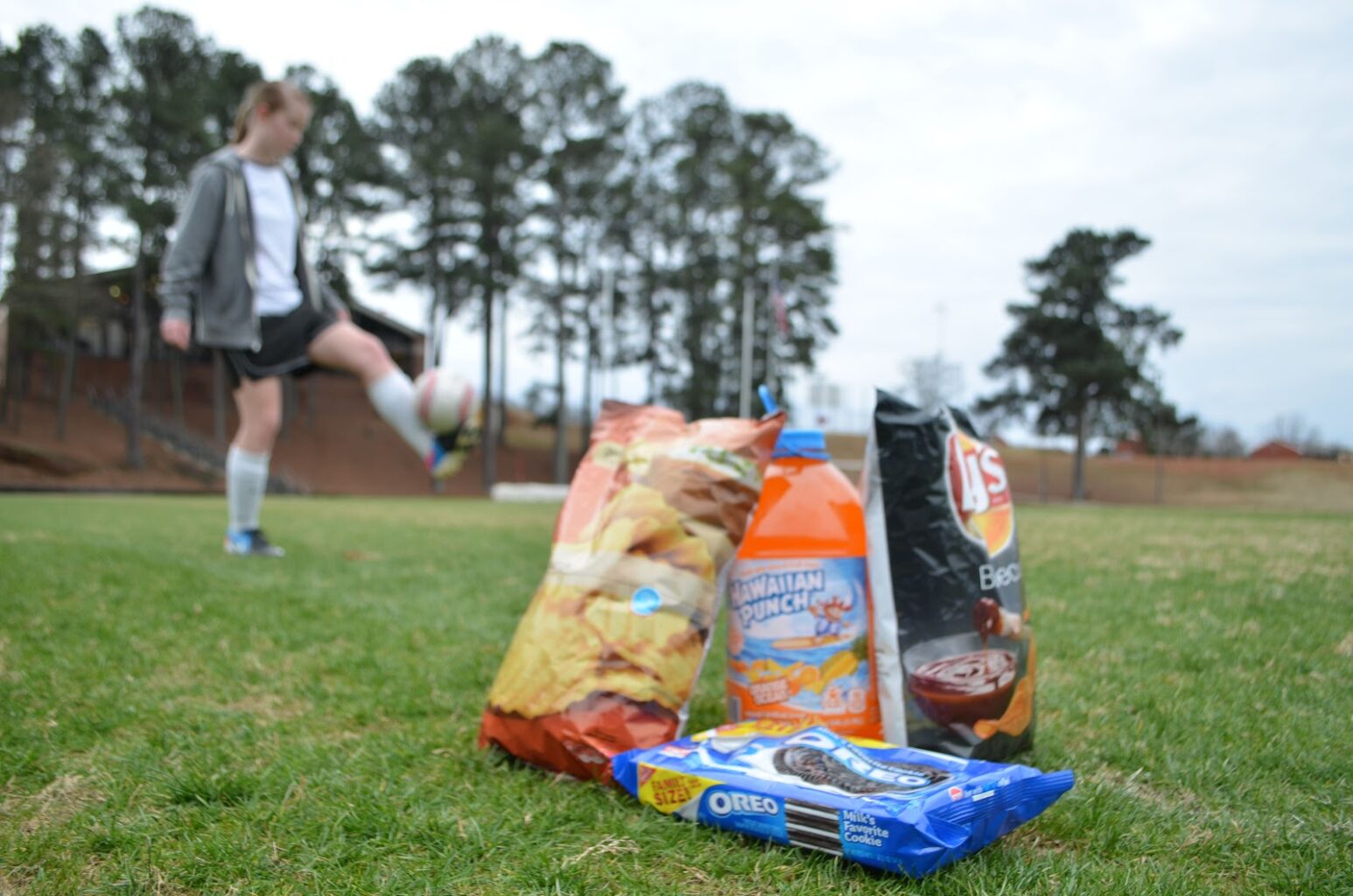Many athletes like to snack on junk food after a practice or game. Junk food is full of unnecessary sugars and artificial flavoring that is damaging to an athlete’s health. “A lot of my teammates eat junk food during the school day,” freshman soccer player Neha Mohanty said. Photo by Julie Alpaugh
By ZOE PETERSON – Staff Writer
After long training sessions, some athletes like to eat at fast food restaurants to celebrate. After big sporting events, some parents bring bags filled with an assortment of chips and juice pouches to the sidelines. Of course it is important to recharge your body after a tough workout, but fast food is not always the right choice.
Some popular fast food meals include the 940 calorie Baconator burger from Wendy’s, which is about ⅓ of a healthy athlete’s daily calorie intake.
“Sports nutrition is now a competitive advantage,” Alicia Kendig, a sports dietitian for the United States Olympic Committee said in an interview with the New York Times. “If you’re eating correctly and you’re ingesting the correct nutrients, there are clear performance benefits.”
At Clarke Central High School sporting events, the range of foods available at the concession stands always seem to be low. With choices ranging from a hot dog to a large Coke, little room is left for healthy choices. After a long game, many athletes visit the stand for a post-game snack to quickly recharge, and it makes no sense that the only choices available are high-calorie foods that are incredibly damaging to a young athlete’s health.
“After a lot of my soccer games I usually end up going to McDonalds because it’s convenient and fast. A lot of my teammates also eat junk food during the school day,” freshman soccer player Neha Mohanty said.
According to a sports nutrition page at Brown University, pre-game meals should be mostly carbohydrates, should have protein to prolong the energy from the meal, and should be very low in fat, to allow the stomach to digest this food quickly. Good examples of this could be a granola bar, fruit smoothie or banana.
Unhealthy snacks like Cheetos or Snickers bars should not be anywhere near athletes, especially in season. Foods like these are full of fats and artificial sugars, which will do nothing but slow an athlete down.
Sonia Kim, an epidemiologist at the Centers for Disease Control and Prevention, published a report and found that one in four teenagers did not eat vegetables at all during the day and one in four teenagers did not eat fruits at all.
According to the Centers for Disease Control and Prevention, an active teenage boy needs about two and a half cups of fruit and four cups of vegetables a day. An active teenage girl needs two cups of fruits and three cups of vegetables every day. Maintaining this healthy diet is important for everyone, but it is especially necessary for working athletes.
Staying hydrated is also an important part of being a healthy athlete. According to the President’s Council on Physical Fitness and Sports, generous amounts of fluid should be consumed the day before a game and 400 to 600 milliliters of fluid should be consumed two hours before the event.
Some athletes stick with the most healthy choice–water–while others consume sports drinks like Gatorade that are filled with food additives and excessive amounts of sugar that aren’t good for an athlete’s diet.
Athletes should make sure to exercise daily and keep a healthy diet, during and outside of the season. Not only does it benefit their health, but it improves their overall performance.
